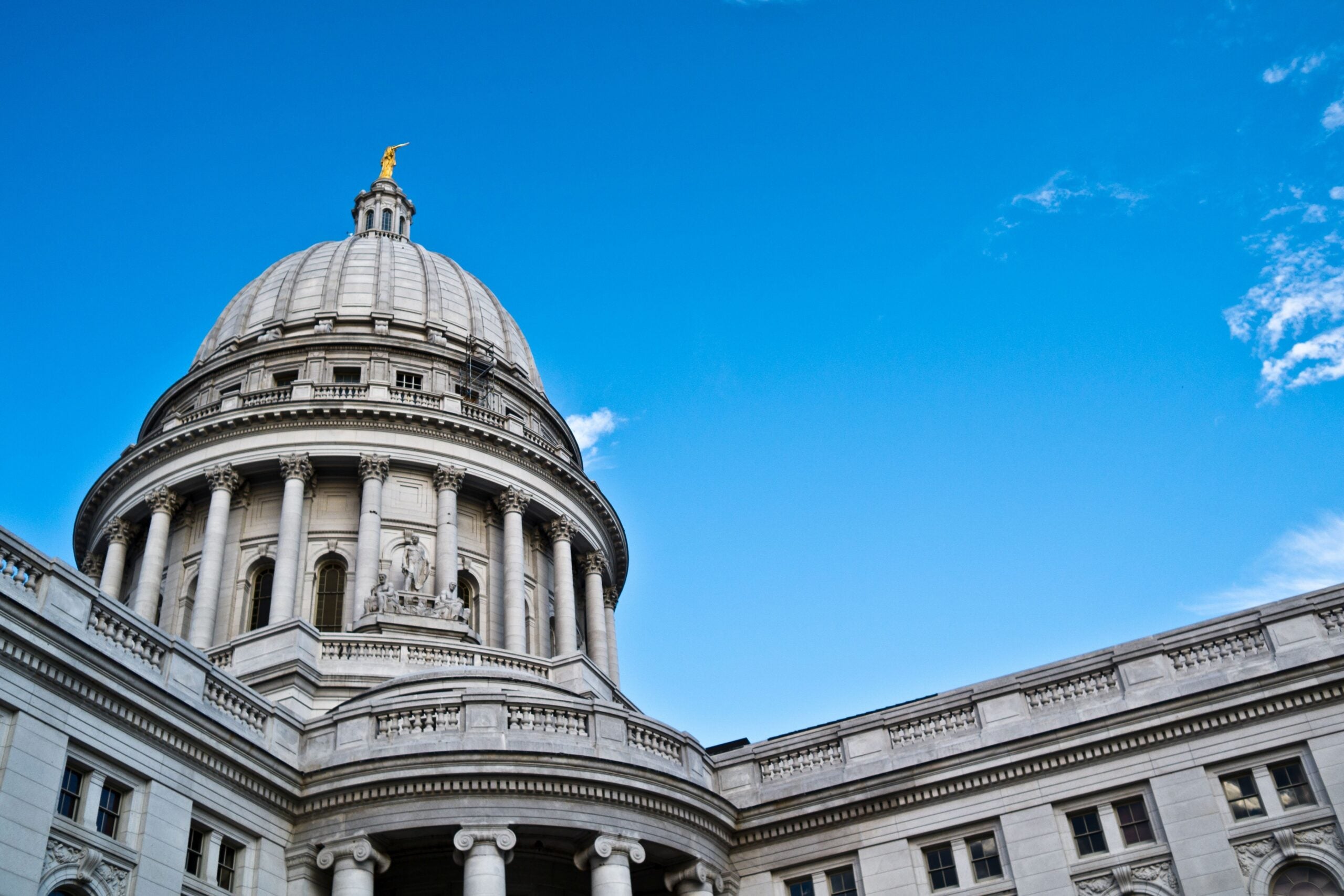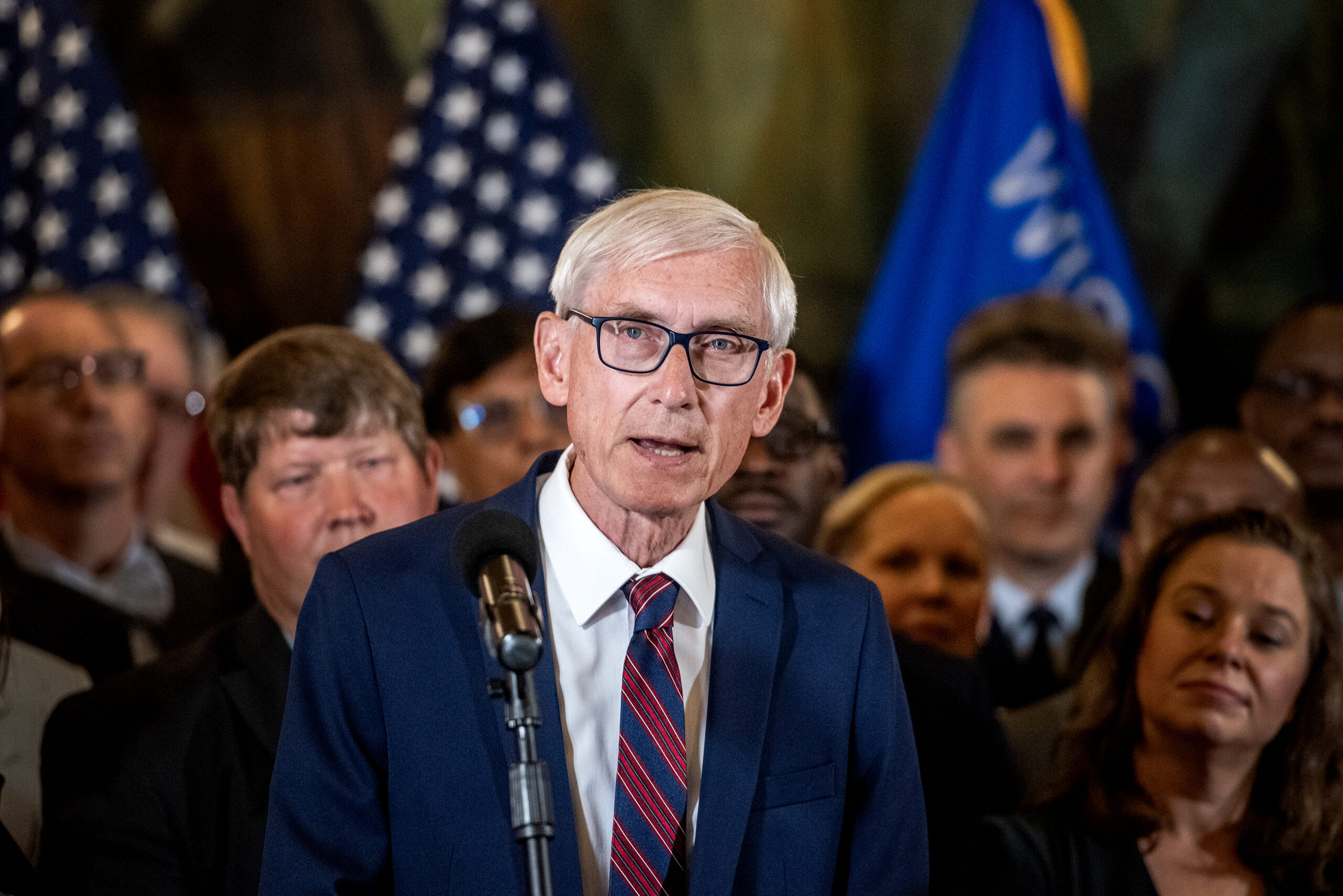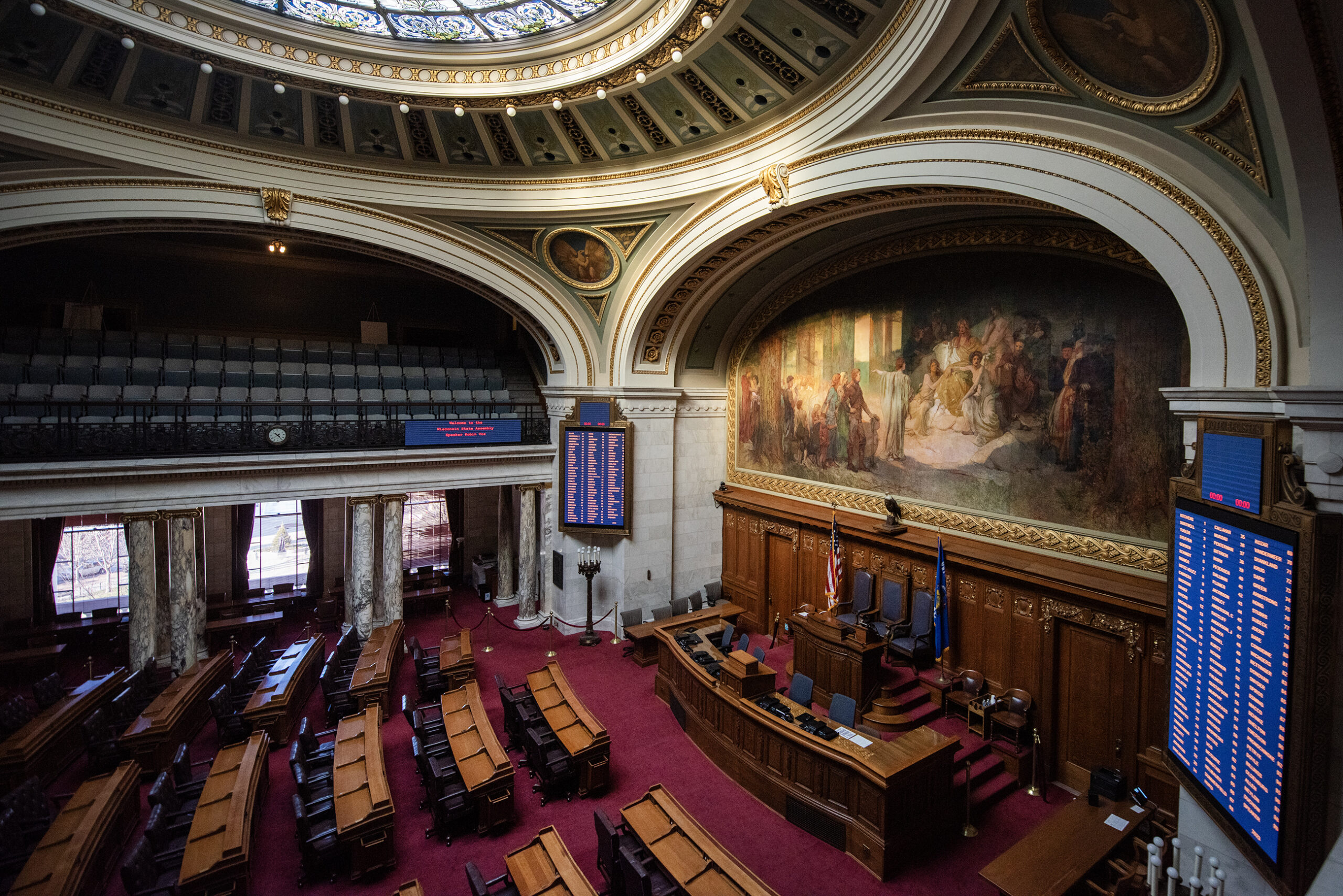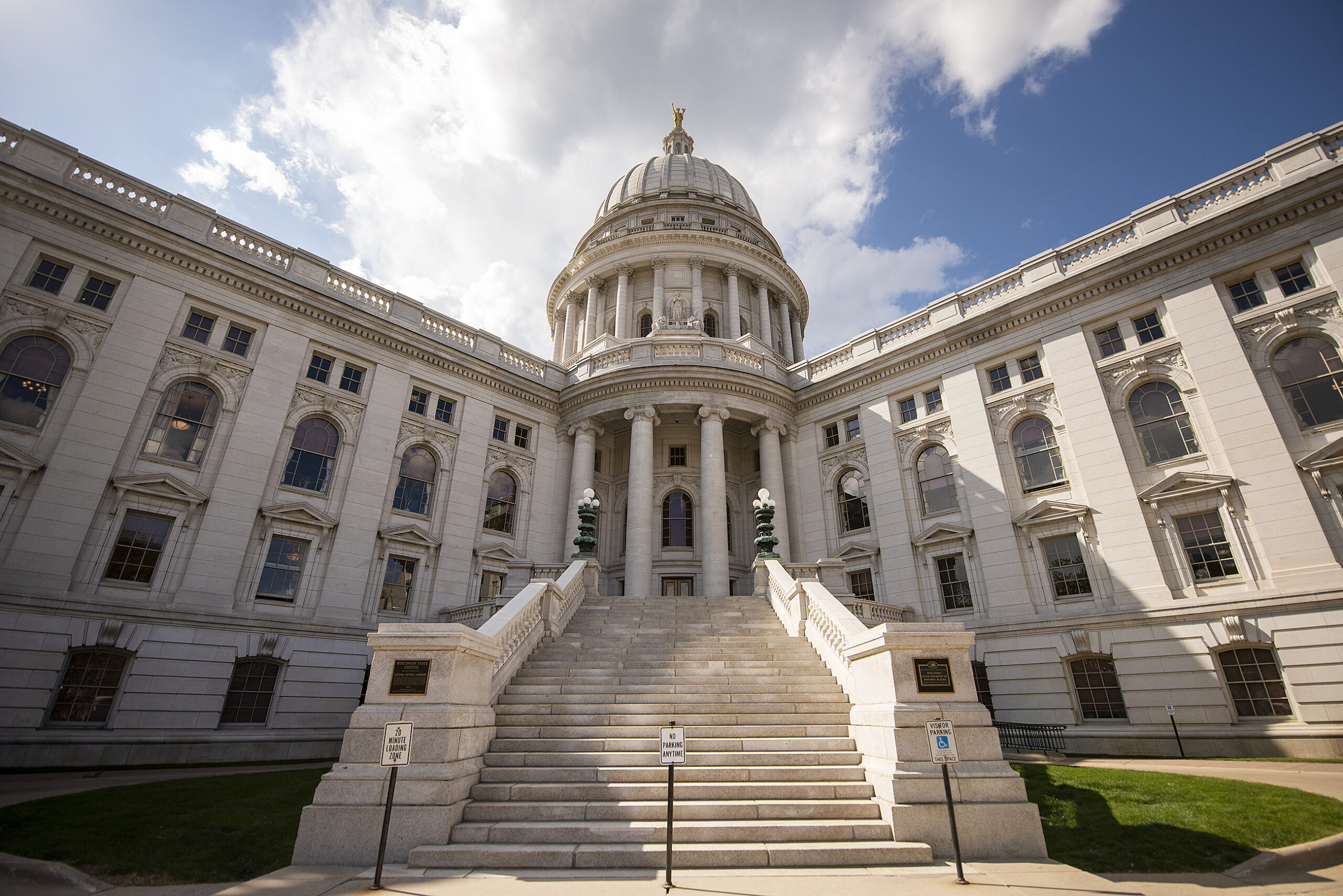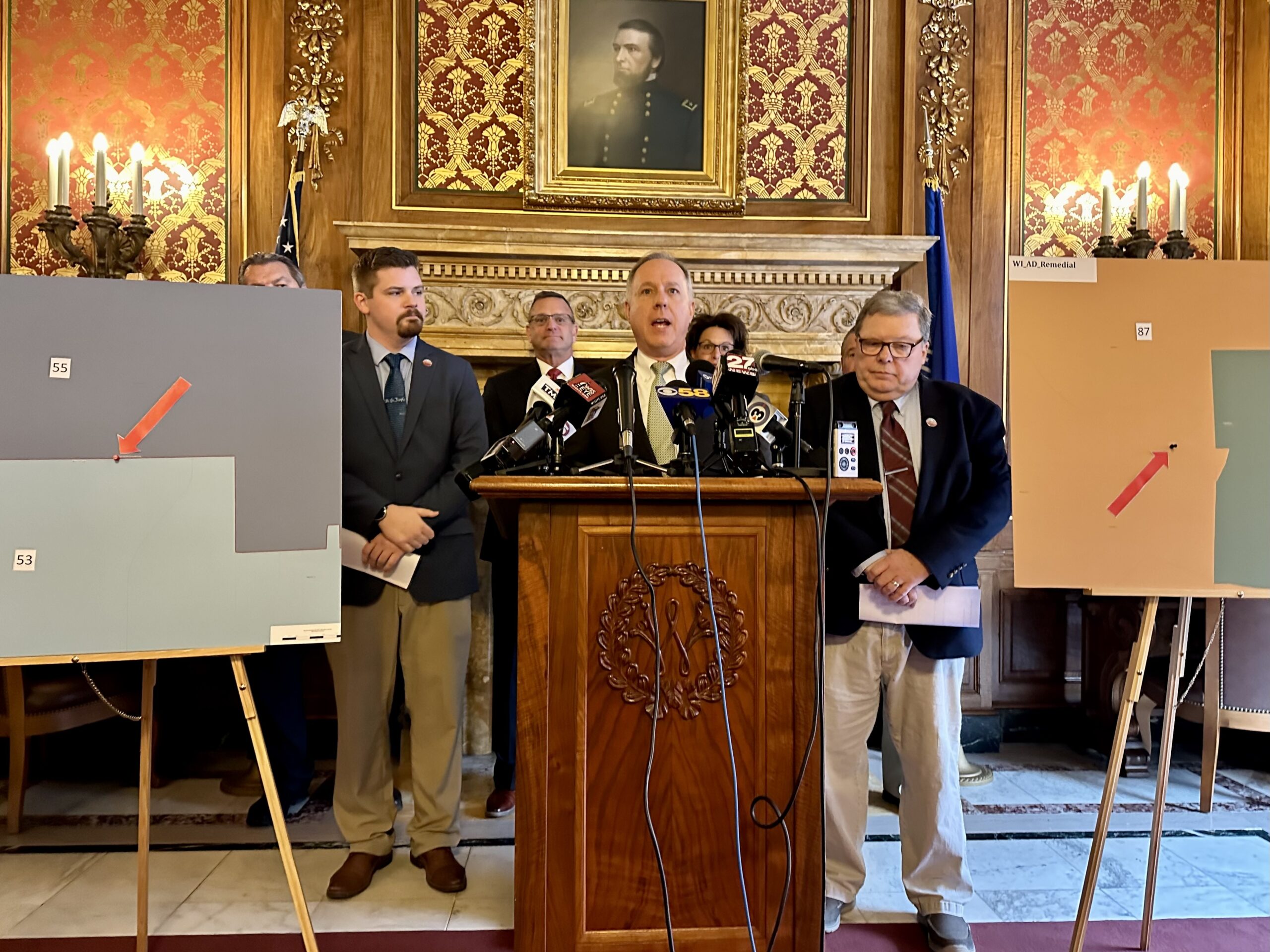A top Republican accused Democratic Gov. Tony Evers of “Nixonesque” tactics after it was revealed that the governor’s staff secretly recorded a private phone call between Evers and GOP leaders.
The phone call took place on May 14, the day after the Wisconsin Supreme Court struck down the Evers administration’s “Safer at Home” order. The Milwaukee Journal Sentinel first reported news of the recording on Wednesday, based on an open records request the newspaper filed with the governor’s office on May 15, the day after the call took place.
The call itself was a slightly more candid version of some of the same arguments that have played out in public between Evers and Republicans over how to reopen Wisconsin in the age of the coronavirus.
Stay informed on the latest news
Sign up for WPR’s email newsletter.
But it was the existence of the recording that riled Republicans, who argued it was both a break from norms and a breach of trust.
“In 26 years in the Legislature, this is one of the most brazen examples of unethical, unprofessional conduct I have ever seen,” said state Senate Majority Leader Scott Fitzgerald, R-Juneau. “The governor has gone so far off the deep end, he’s making secret Nixonesque recordings from the East Wing of the Capitol.”
Assembly Speaker Robin Vos, R-Rochester, issued his own statement saying the governor had violated a sense of “trust, civility and integrity” by secretly taping the meeting.
The recording was legal because Wisconsin is what’s known as a “single-party consent” state, meaning a phone call can be recorded as long as one party knows it’s being taped.
That’s not to say it’s common practice when it comes to meetings between lawmakers and the governor, and in this case, the governor’s office said the meeting was recorded without Evers’ knowledge.
“The governor wasn’t aware that the conversation was recorded,” said Evers spokesperson Melissa Baldauff in a written statement. “He has since directed our staff that this will not happen again.”
Baldauff said the May 14 conversation was intended to focus on a potential path forward after the Wisconsin Supreme Court ruled that the Evers’ administration exceeded its authority when it issued its stay-at-home order. The court’s ruling meant that any future stay-at-home order would require lawmakers’ involvement through the Legislature’s rulemaking process.
“The goal was for both sides to come to the table with ideas on what should be included in a rule that would be amenable to Republicans in the legislature, and our staff wanted to ensure that any rule we drafted would accurately reflect this conversation,” Baldauff said. “The recording was intended for internal use only to inform detailed note taking and planning next steps. This was not intended for release to the media or anyone else, however, we were obligated to comply with the open records law to release these records once they were requested.”
Evers, Republicans, At Odds During Call
Given the timing of the call, it may have been the first time Evers, Fitzgerald and Vos had spoken about the path forward following the Supreme Court ruling. Joining Evers on the call were Maggie Gau, his chief of staff, and Ryan Nilsesteun, his chief legal counsel.
For nearly two months prior to the ruling, Evers’ administration had managed the state’s response to the COVID-19 pandemic on its own, issuing a variety of executive orders that initially shut the state down, but also set flexible parameters on when it should reopen.
Evers indicated on the call with Fitzgerald and Vos that his administration had initiated a new emergency rule to replace the statewide stay-at-home order, a process that would require a 10-day waiting period before the next step.
“In the meantime, or today … let us know what you’re going to say ‘yes’ to in the rule or what you don’t want to see in the rule,” the governor told Fitzgerald and Vos.
Fitzgerald indicated that he wanted to know how the state would address COVID-19 in nursing homes and how it would get K-12 schools up and running, a power the Supreme Court ruling left in the governor’s hands.
The governor then asked Fitzgerald and Vos what they thought about bars that had opened up immediately after the ruling, filling with customers.
“Are you all concerned about our bars being at capacity?” the governor asked.
“You tell me what you would have done two weeks from now, ’cause the same issue would have emerged,” Fitzgerald responded, referring to the date when state’s “Safer at Home” extension was set to expire.
As Evers and his staff repeatedly asked Republicans what they’d be willing to accept in a new stay-at-home rule, Vos asked Evers why he needed the rule in the first place, given the power of local health officials to respond to outbreaks.
And when Evers’ staff referred to its own benchmarks for a more gradual reopening — which he called the “Badger Bounce Back” plan — Fitzgerald pushed back.
“That’s all behind us,” Fitzgerald said. “We’re open.”
When the conversation again drifted back to bars, Evers said he would have preferred to put some type of limit on bar capacity.
“In a perfect world, we would have opened up bars just like we did in any other state, with some sort of parameters instead of seeing pictures today of bars absolutely bursting at the seams,” Evers said.
Fitzgerald responded, this time more animated: “Governor, when was the last time you were in Home Depot on a Saturday? When was the last time you were in Walmart on a Saturday? Are you kidding me? You’re not being serious right now, are you? Those places are bursting at the seams every weekend.”
The call eventually ended with Evers saying the two sides would get back together “some time next week,” although Evers’ administration would rescind its rule proposal just days later.
Since then, there have been no public signs that Evers and Republicans are working together toward any new kind of framework for the state’s COVID-19 response, and it remains unclear how the state might handle a future spike in cases.
Many of the governor’s initiatives have moved ahead regardless, with the state dramatically ramping up testing and contact tracing for COVID-19, two steps public health experts say are crucial to controlling and monitoring the pandemic. Meanwhile, the percentage of positive COVID-19 cases has continued to decline, hovering below 3 percent for most of the past week.
Wisconsin Public Radio, © Copyright 2024, Board of Regents of the University of Wisconsin System and Wisconsin Educational Communications Board.

